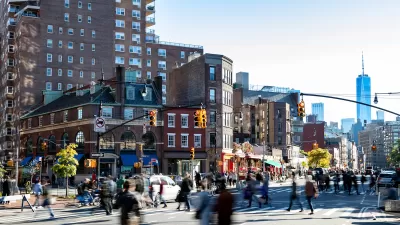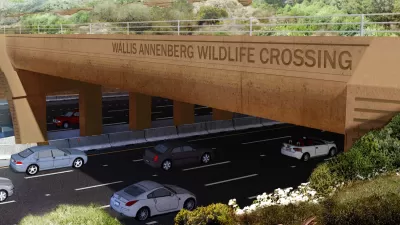As Brazil prepares to host the 2014 World Cup and 2016 Olympics, renovations to the Maracana, an infamous soccer stadium in Rio de Janeiro, are pricing out the city's poor. Some say the work is killing one of the city's few egalitarian public places.
"That general admission area known as the geral has steadily disappeared. The stadium's official capacity of 173,000 was more than halved during preparations for the 1999 FIFA Club World Cup, when the Maracanã was converted to an all-seater, in which every patron has a seat. For the 2007 Pan American Games, the general admission area was closed off, as is the entire stadium today. Its capacity - some say more than 200,000 crammed in for the 1950 final, a heartbreaking loss to Uruguay - will be just 76,525 when the renovated Maracanã reopens in 2013 to host the Confederations Cup, the World Cup's dress rehearsal. Those renovations will cost more than $600 million, according to the state's Office of Public Works, but they were not entirely welcomed.
'It's just one reform after another without anyone ever doing any kind of research as to what the people who actually use the stadium want,' said Christopher Gaffney, a visiting professor of urbanism at the Federal University in Fluminense in the state of Rio de Janeiro. "
A group of fans has formed an activist group opposing the project, and seeking more say in how the city and country prepare for these major sporting events.
FULL STORY: Stadium Upgrades Squeezing Out Brazil’s Poorer Fans

Pennsylvania Mall Conversion Bill Passes House
If passed, the bill would promote the adaptive reuse of defunct commercial buildings.

Planning for Accessibility: Proximity is More Important than Mobility
Accessibility-based planning minimizes the distance that people must travel to reach desired services and activities. Measured this way, increased density can provide more total benefits than increased speeds.

World's Largest Wildlife Overpass In the Works in Los Angeles County
Caltrans will soon close half of the 101 Freeway in order to continue construction of the Wallis Annenberg Wildlife Crossing near Agoura Hills in Los Angeles County.

Colorado Bans No-Fault Evictions
In most cases, landlords must provide a just cause for evicting tenants.

Alaska Village Becomes Test Case for Climate Change Relocation
The Yup’ik village of Newtok is the first Alaska community to begin a full-scale relocation necessitated by the impacts of climate change. Another 31 Alaska communities remain vulnerable.

Amtrak Takes Lead on Texas Central Rail
The high-speed rail project isn’t a done deal, but if it moves forward, trains could begin operating in 2030.
City of Costa Mesa
Licking County
Barrett Planning Group LLC
HUD's Office of Policy Development and Research
Mpact Transit + Community
HUD's Office of Policy Development and Research
Tufts University, Department of Urban and Environmental Policy & Planning
City of Universal City TX
ULI Northwest Arkansas
Urban Design for Planners 1: Software Tools
This six-course series explores essential urban design concepts using open source software and equips planners with the tools they need to participate fully in the urban design process.
Planning for Universal Design
Learn the tools for implementing Universal Design in planning regulations.























